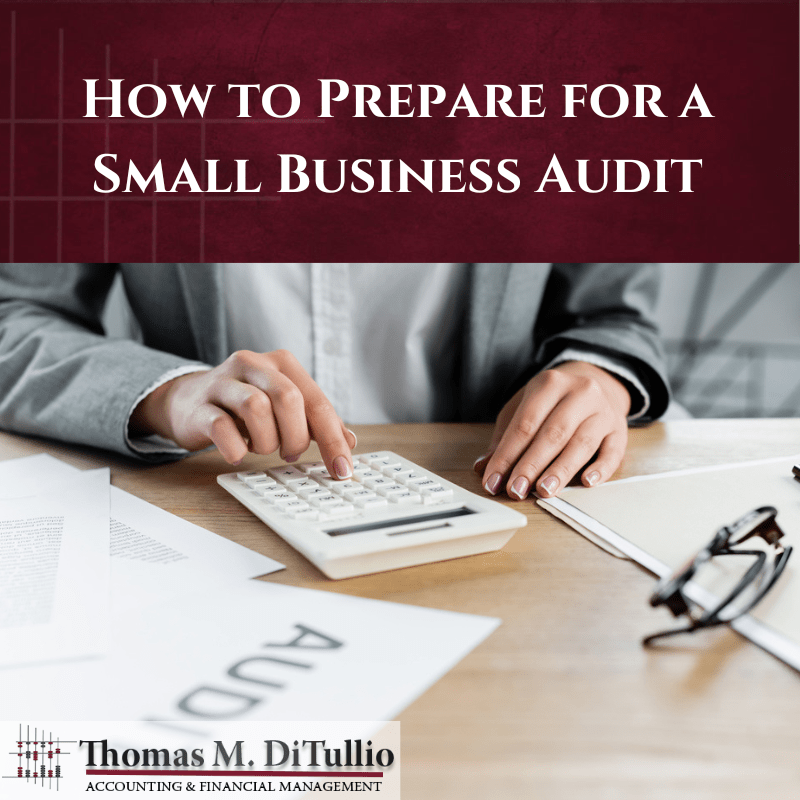How to Prepare for a Small Business Audit
You open your mailbox to find a letter with a return address from the IRS. You open it to find that your small business is being audited and your heart sinks. No one wants to have their finances reviewed by the Internal Revenue Service, a prospect that is nerve-wracking, stressful and complicated. Small business accounting services say that getting a letter from the IRS does not have to mean fear and stress, however.
If you have prepared properly and documented your business expenses thoroughly, the fear of the audit may be more stressful than the audit itself. Use these tips to guide you through an IRS audit in order to make the process as painless as possible.
Understanding How Companies are Chosen for Audit
The first step in reducing the stress of an IRS audit is to understand what led to your business being chosen for one in the first place. Most small business owners have no idea why they were chosen and that is an indication that they likely have done nothing wrong. If the first things that comes to mind is “the accountant for my small business must have made a mistake,” you are likely correct. Most audits are due to minor errors that were picked up when tax returns are reviewed. There are some common red flags the IRS looks for when reviewing tax forms as well.
If you operate a business that is cash-intensive, like a café, the IRS may take a closer look. Deductions that seem excessive, such as for meals or entertainment as well as claiming 100 percent use of a company vehicle could trigger an audit.
Other triggers include:
- Inflated salaries to employees who are also owners or stockholders
- Reimbursed business expenses that are excessive
- Paying or filing taxes late in multiple years
- Very large charitable contributions
Even if those expenses are legitimate, they trigger a review by the IRS which is why small business accounting services suggest you change your operations, so these items are not part of your annual tax filing.
Keep Good Track of Your Finances
One question to ask yourself is “would the accountant for my small business be able to understand this expense?” If the answer to that is no, you may not be keeping good track of your finances. You should follow approved accounting practices throughout the year which will make it less likely your company will be audited. You need to review your financial accounts regularly in order to look for possible errors. Keep accurate records all year long, so you are not scrambling on December 31 to organize things for your small business accounting services. They are likely not going to be excited about a shoebox full of unsorted receipts. If your financial documents are organized and in order, even if you are audited, you will be able to provide details to the IRS.
Anticipate What Will Be Asked
An IRS auditor is likely not interested in seeing your entire financial picture. They are usually looking for particular information due to something that caught their eye in a review. Take the time to go over your financial details before the audit to see where they may have questions. If you had higher than normal meal and entertainment expenses one year because you were expanding your customer base, organize those receipts and any notes you may have about what you discussed during the meal. By cooperating and coming forward with a known problem area, the audit process can go much more quickly.
What Paperwork Do You Need?
There are standard documents the IRS will want to see, regardless of why the audit was triggered. They will want to see bank statements, receipts and canceled checks. The IRS will accept electronic versions, but they must include the name and address of who was paid, the date of the payment and the amount paid. If your company keeps formal books, such as ledgers and journals, you will need to turn them over to the IRS as well. Some businesses may be required to provide an appointment book, such as car service or hair salon owners. If one of the issues is higher than normal meals and entertainment, your appointment calendar may help prove the expenses were legitimate. Equipment and vehicle records may be requested along with travel and entertainment documents.
Small Business Accounting Service
The best way to reduce your risk of audit or to successfully prove that your tax returns were accurate is to work with an accounting service like TMD Accounting. One thing to ask is “does the accountant for my small business offer audit services?” If you have an accountant who files your taxes, they should offer audit protection and, if they make the mistake, many will cover any penalties and fees for you. Working with an accountant can not only help you manage the stress of an IRS audit, but they can also reduce the chance that a red flag will appear in an IRS review at all.
If you are in need of a small business accountant, contact TMD Accounting today to see how we can help. You can arrange for a no obligation consultation by calling 1-856-228-2205 or fill out the easy online form to see how our tax experts can help. Find out why our motto is “where numbers matter and people count. With 40 years of experience, you can trust that we will get your company’s financial world in order.

